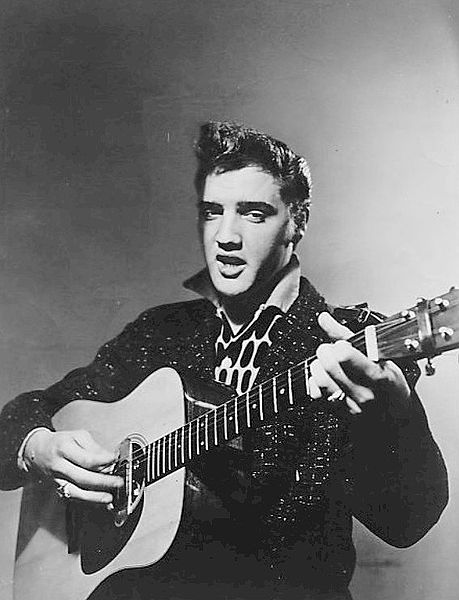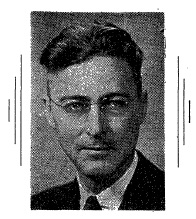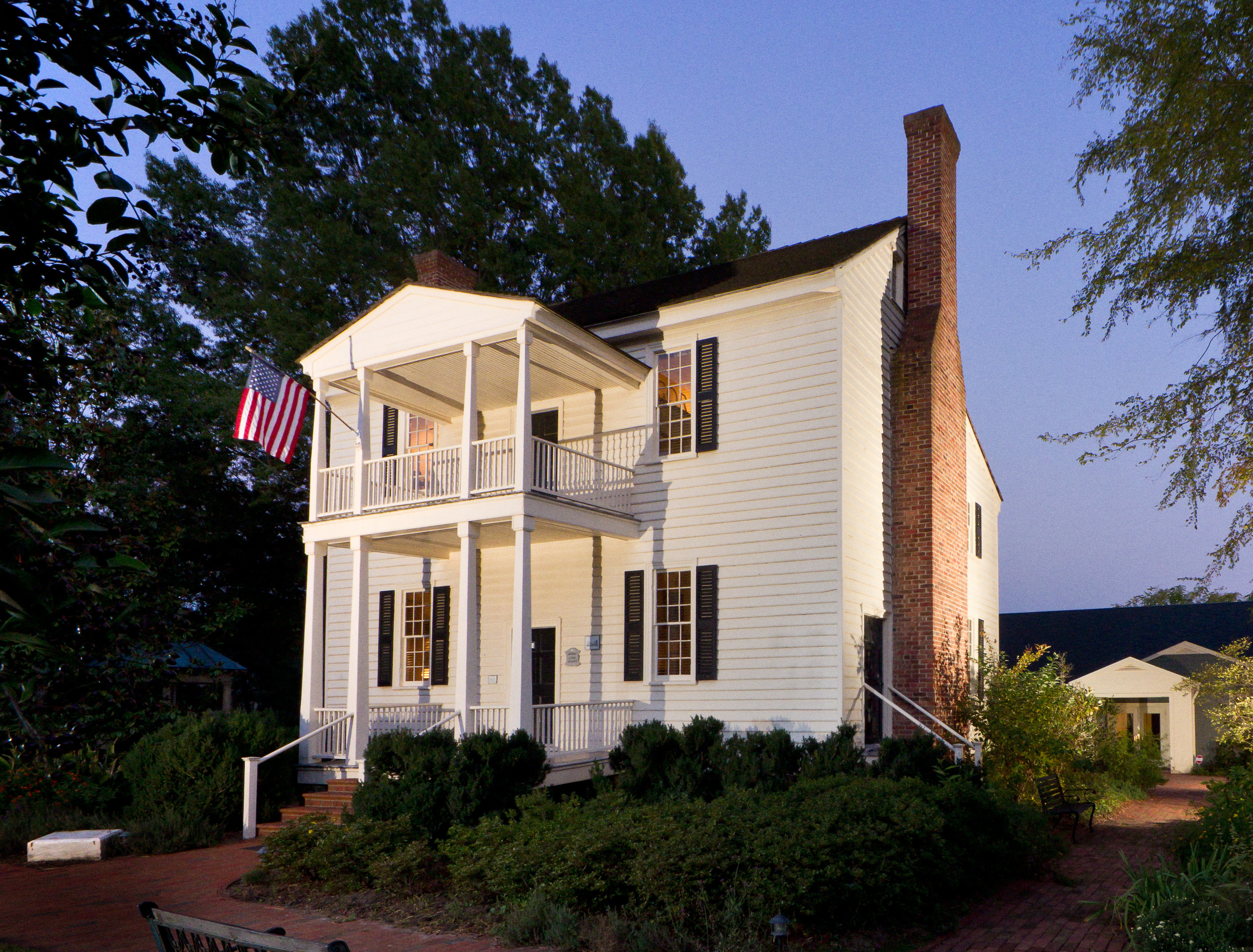“You don’t have to be a musician to love music.” With these words Dr. Thane McDonald convinced and assured me that I would enjoy and benefit from his course in History of Music at then Wake Forest College.
I grew up the son of tobacco farmers and Free Will Baptists in eastern North Carolina, my first seven years only a few miles from the home of Ava Gardner. None of her talents enured to me. Dad moved us from the fertile loamy soil rental farm just southeast of Smithfield to a rocky red-clay severely eroded 90-acre tract of God’s gift of eternal hardship from the tender age of seven years.
Both older brothers showed no genuine interest. I grew to love that farm, my dad’s pride and joy, and promised him shortly before he passed at the age of 84 that I would look after my mother and would not let them sell the farm. It had become the gathering place for his and her families and the only stable location for many of them to “come back home.” I still struggle to keep my promise. We held on to mother until God “took her breath away” just 8 weeks before her 105th birthday. My younger sister, my children, grandchildren, cousins, nieces, nephews, friends, neighbors share my passion for the farm.
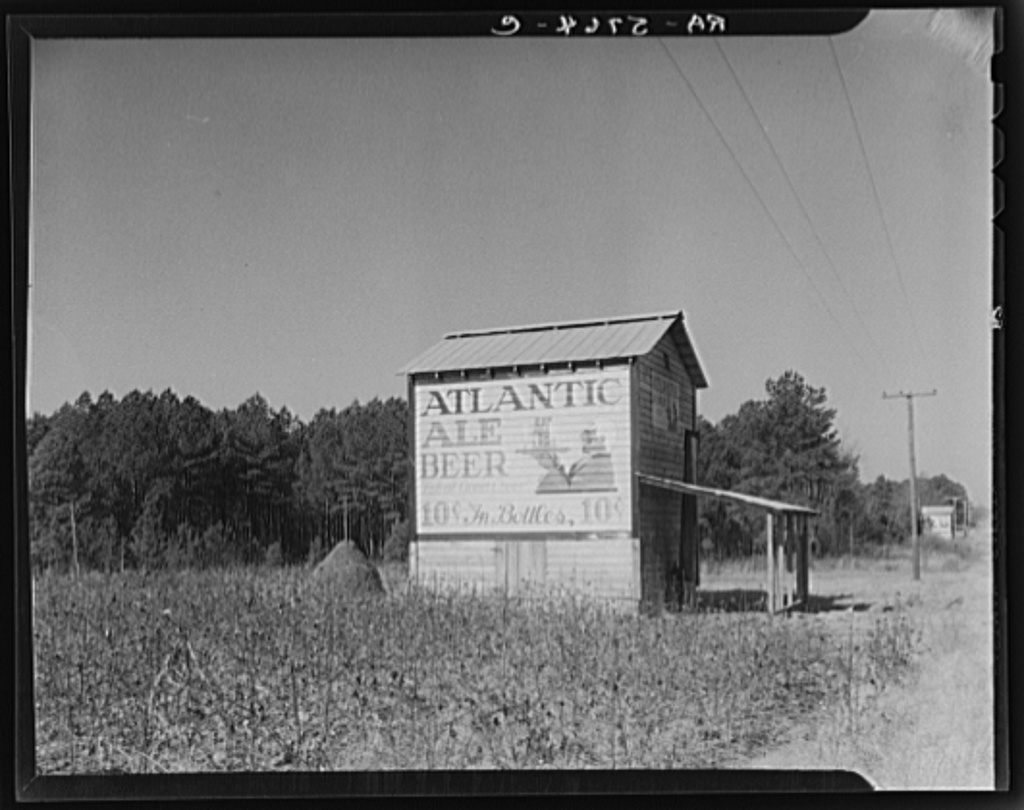
A Johnston County, North Carolina, tobacco barn (Farm Security Administration/Office of War Information)
Those rocks and that red clay became our winter work. We picked up rocks and hauled them to the eroded gullies and covered most of them over with productive soil. When dad sold a tract of timber it was milled right there on the farm, and the sawdust was permitted to lie dormant for several years until it decayed. In the winters dad hauled it onto the red-clay areas and spread it. Within a year or so that red clay became richly fertile. Winter work also included digging out the manure from the mule and cow stables, breaking it up and broadcasting it by hand onto the fields.
Dad laid out terraces to control the erosion. His row crops were planted to follow the bends of those terraces. Dad cared for the land. It rewarded him. He was a superb farmer. R.J. Reynolds was the leading tobacco manufacturer and when dad took his tobacco to market auctions the RJR buyer always bought it all, often paying 3 to 5 cents per pound over the next highest bid. In those days RJR dealt in quality. The buyer knew he could depend on dad’s tobacco to be properly grown, cured, and prepared for market. He knew it would not be trashy and the leafs would be bright, light, and flaky, with no toxic residue or excessive nicotines and tars.
But this isn’t about tobacco, or farming. It is about quality, and music. My mother, bless her soul, dragged us all, every Sunday, from that red clay farm to Johnston Union Free Will Baptist Church where we learned more discipline and a strong faith in our God. I earned a pin with 7 yearly pendants for perfect Sunday School attendance. My mother enrolled me in a “singing” class taught by our choir leader. It was only after the choir leader finally out of kindness told my mother that I was hopeless, “He cannot carry a tune in a bucket,” that she, brokenhearted, relented.
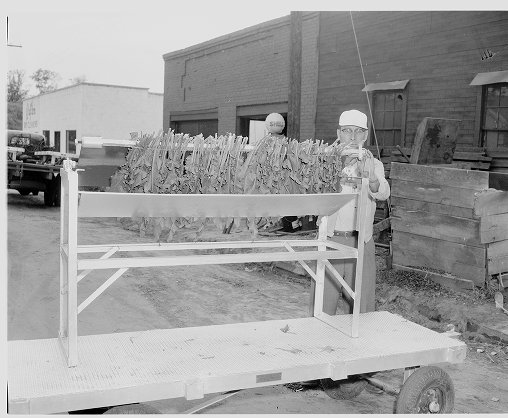
A farmer adjusts a rack of drying tobacco leaves. (The Daily Reflector Image Collection, J.Y. Joyner Library at East Carolina University)
I got a reprieve, until 5th grade in school. An insensitive teacher forced each of us, to stand before the class, and sing a song of our choice. I was the last of 27 students to perform. Classmates, today, who endured that torture, still remember “The Letter Edged in Black.” Only about a year later, my first girlfriend, an accomplished singer, came for a weekend visit with a neighbor. They convinced me that I should attend Sunday night church services at a nearby church with them.
When the minister announced that it was time for the youth choir to assemble and sing, I puppy-dog followed and, hoping to impress, bellowed out my voice-changing falsetto. My “girlfriend” stopped singing, turned to me, sternly stating, “Someone is singing off-key.” The silence was deafening. I was totally embarrassed. Off-key, the house I lived in did not have a door that locked. Dad’s old car had a toggle off/on switch. He had no key. Off-key, what did she mean? But she was really sweet, and kind. She taught me a lot thereafter, about music, as long as I did not try to sing. She died a year ago. We had remained close friends throughout.
I, like my friends through high school and my room mates during my freshman year at Wake Forest in 1953-54 enjoyed country, western, and the oldies but smoothies – Bing Crosby, Perry Como, Dean Martin, etc. On into four years in the Marine Corps I bought a tape recorder, ultra modern for that era, and taped the same along with the emerging rock and roll with Elvis and contemporaries. I had learned in USMC boot camp to move my mouth, lip-sync, scowl the bad marine expression while my fellow trainees for the satisfaction of drill instructors belted out the Marine Corps Hymn, “From the halls of Montezuma … .” I managed to deceive all within earshot during church services and other occasions that expected choral participation.
Uncle Sam released me from active duty. I resumed my studies at Campbell Junior College in the spring of 1959, which was so much like my freshman year at Wake on the old campus. (I needed to learn to study allover again.) This led to my next musical encounter. I was persuaded by a black-haired, blue-eyed, long legged multi-talented lady to join her in a large “Music Appreciation” two-hour “crip” course. Campbell has always, still is, been known for its superior music department.
The head of the department was a talented man who could play almost all the known instruments. He introduced us to most of them, and by the end of the semester we were expected to identify each one by sight as well as by sound. It was there that I learned to “appreciate” music. All students were simply inspired by him. Even me. The class was always relaxed. We were seated by chart in a theater type classroom, and the raven haired beauty sat one seat to my right and next row back. She kept me alert and interested, either by peppering my right ear with any kind of missile, or by throwing one of those majestic legs over and between the seat backs to my right and flexing her calf. I loved her dearly. We never dated. I got a B on the course.
After three semesters at Campbell I returned to Wake Forest in the fall of 1960 having settled on English as my major with plans to teach. A faculty advisor suggested extra courses in social studies which would position me for a double major enabling a better opportunity for teaching jobs. I agreed and to accommodate my schedule I signed up for a History of Music course taught by Dr. Thane McDonald. I was terrified when I attended my first class and learned that there were only four of us in the class; the other three were all music majors.
I expressed my reluctance and confessed my total lack of musical talents. Dr. Mac knew Charles Horton, my “appreciation” professor at Campbell. He had my credit records from Campbell and told me my B on the course proved I had potential. I never mentioned the long legs. I agreed to stay with the class if he would never ask me to sing or attempt any instrument. Also, four was a magic number for a minimal class size. Neither of us realized it at the time but Dr. Mac that semester opened up a real new world for me.
That 3-hour course played out to be the most memorable class of my entire academic pursuit. The 3 classmates were kind, helpful. Dr. Mac was strict, but extraordinary. His history of music was mainly about the great musicians and their works. The music library was extensive and Dr. Mac took us on several occasions to his home and blessed us with listening to many records in his private collection. I even enjoyed the classes of rote dates and names and places. All this dribble has been to anticipate my conclusion.
Dr. Mac’s grading system was based on class participation, attendant testing, and a mid-semester exam. I scored a proud C. This was also considered in course finals. The final exam consisted of the usual test booklet on rote accomplishments (50%) and a music “interpretation, appreciation.” We were given a list of records and permitted to choose one, go to the carrels in the rear of the music building, play the record, and write our response.
Dr. Mac posted our booklet grades immediately and gave us the option of completing the listening response at our leisure within three days, and instructed us to time ourselves (on our honor) to one hour. I had scored another C on the written rote portion. My hopes for at least a C on the entire course faded. I selected a record I thought I recalled our discussing in class. When it started playing I was overjoyed. I listened to the entire selection, went back and played it again, pausing the tum-table periodically as I wrote.
I completed my writing in just over 30 minutes, took the record off to return it to the records library, and looking at the label discovered I had played it on the wrong speed. My kidneys almost failed. When I returned from the rest room I had 12 minutes. I had no choice. I scratched a diagonal line down each of the 4 pages I had written. I then confessed my error and proceeded to listen (on the correct speed) and write. I quick scribbled another page and a half, and at exactly one hour I recorded the time, returned the record, and slipped my test booklet under Dr. Mac’s door. No grades had been posted. I later learned I was the first to turn my paper in.
A day later I returned to confirm my expected D or F. There were two Bs posted and one A. A note “See Me” was penned by my name. I knocked on Dr. Mac’s door. “Come in, Mr. Stephenson.” He was seated behind his desk. He almost roared a belly laugh as he raised a test booklet. I knew I was doomed. He then recounted tales of several students over the years. As he placed the booklet on his desk I saw a large A+ on the cover, also a B for the course. “Jackie, this is undoubtedly the most delightful rendition I have read in years.” We chatted briefly. He had listened to the same record on the wrong speed. “Your response on the right speed wasn’t bad either.” He asked to keep the booklet.
My delightful rendition: My record selection had reminded me of a movie I had seen. It featured an old English (foxhunt) with an occasional burst of “The William Tell Overture.” I had written of horses and foxes and women and men riders and an occasional frightened hare, jumping and falling, making sudden turns and racing at breath-taking speeds, all synchronized to the overture.
Today, I still keep my car radio tuned to classical stations whose selections are relaxing and comforting and constantly remind me that you do not have to be a musician to love music, and of Dr. Mac and the many people who enriched my life.

